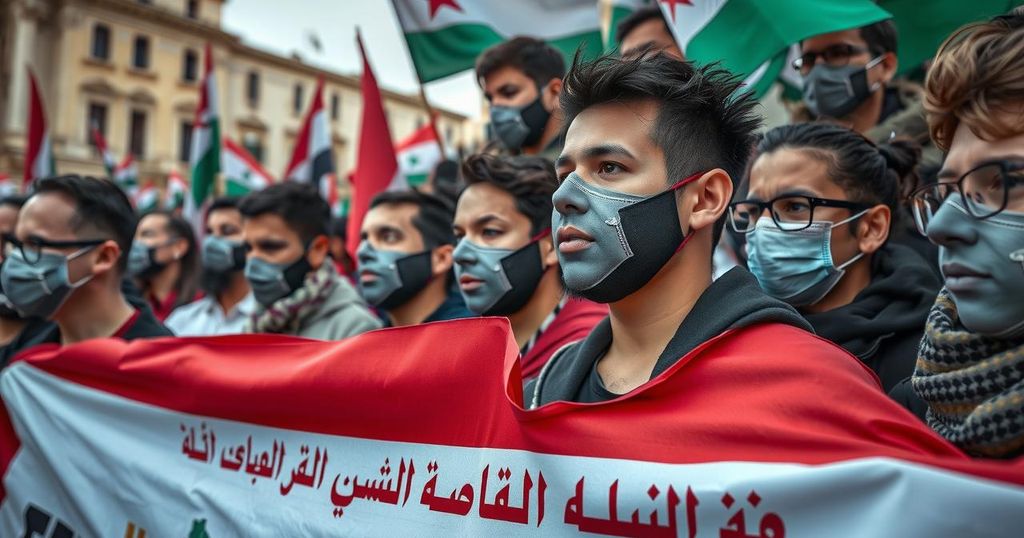Hundreds of protesters rallied in Tripoli, Lebanon, demanding the release of Islamist detainees arrested during the Syrian civil war. Protesters claimed these individuals fought against Assad’s regime, expressing a need for justice and fair trials. Prime Minister Najib Mikati mentioned the resolution of this issue hinges on parliamentary discussions regarding a general amnesty. The protest underscores the ongoing sectarian tensions in Lebanon exacerbated by the Syrian conflict.
On Sunday, a significant rally took place in Tripoli, Lebanon, where hundreds of demonstrators demanded the release of Islamist individuals detained during the ongoing Syrian civil war. These detainees, largely composed of Lebanese nationals, had ventured to Syria to combat against the regime of Bashar al-Assad since the war’s initiation in 2011, only to be arrested upon returning home. Protesters asserted the necessity to exert pressure on Lebanese authorities for the release of these individuals, highlighting their involvement in supporting those fighting against Assad’s regime.
Ahmad al-Shimali, one of the protestors, articulated the sentiment of the crowd, stating that the Islamist detainees were arrested due to their involvement in the Syrian revolution by either fighting or communicating with opposing forces. As the protest unfolded in Nour Square, the demonstrators reiterated their determination to advocate for justice, emphasizing that the control of the Assad regime had now been dismantled. The rally comes amidst a backdrop of longstanding calls from human rights advocates for fair trials for individuals suspected of Islamist extremism, many of whom have languished in incarceration without trial for numerous years.
Prime Minister Najib Mikati had previously addressed the families of these detainees, assuring them that the matter should reach a conclusive resolution, contingent upon parliamentary discussions regarding a potential general amnesty for these individuals. The tensions in Tripoli are exacerbated by the city’s history of conflicts, particularly in the early phases of the Syrian war, which was precipitated by the governmental suppression of protests advocating for democratic reforms. This strife has particularly polarized the regions of Bab al-Tebbaneh and Jabal Mohsen, illustrating the complexities of sectarian divides in the area that are fundamentally tied to the broader conflict in Syria.
The Syrian civil war, which erupted in 2011, has had widespread repercussions throughout the region, particularly influencing neighboring Lebanon. Many Lebanese individuals traveled to Syria to support rebel factions against the Assad government, often aligning with Islamist groups. These actions led to their arrest upon returning to Lebanon, resulting in prolonged detentions amid allegations of extremism. The political climate in Lebanon has fostered a climate of sectarian tension, particularly between Sunni and Alawite communities, alongside persistent calls for justice and fair treatment for those jailed for their actions during the conflict.
In conclusion, the rally in Tripoli reflects a growing movement advocating for the release of Islamist detainees arrested during the Syrian civil war, as evidenced by the demonstrators’ calls for justice. Amid heightened tensions and complex sectarian dynamics, the plight of these individuals highlights the need for fair trials and addresses to longstanding grievances within the Lebanese justice system. The commitment of Prime Minister Najib Mikati to resolving this issue could potentially lead to significant changes, contingent upon parliamentary actions regarding amnesty.
Original Source: www.france24.com






